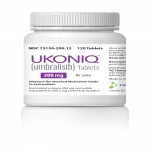Drug Safety: A Comprehensive List of Withdrawn Drugs Due to Safety Concerns

Drug safety is an important aspect of the pharmaceutical industry and the healthcare system as a whole. It refers to the measures taken to ensure that medications are safe and effective for patients. The safety of drugs is a critical concern because they have the potential to cause harm if not used correctly. In this essay, we will explore the importance of drug safety, including the risks associated with unsafe drugs and the measures taken to ensure the safety of medications.
Firstly, drug safety is important because unsafe drugs can cause harm to patients. Medications can have side effects, which are unintended reactions to the drug. Side effects can range from minor to severe, and some can be life-threatening. For example, some antibiotics can cause allergic reactions that can be fatal if not treated promptly. The use of unsafe drugs can also lead to medication errors, which can have serious consequences for patients. Medication errors can occur at any stage of the medication process, from prescribing to administering the drug, and can result in incorrect dosages, missed doses, or drug interactions.
Secondly, drug safety is important because it helps to build trust between patients and healthcare providers. Patients rely on healthcare providers to prescribe and administer safe and effective medications. When drugs are unsafe or ineffective, it can erode patients’ trust in healthcare providers and the healthcare system as a whole. In addition, drug safety is important for the pharmaceutical industry because it helps to build trust with regulators and investors. If a drug is found to be unsafe, it can damage the reputation of the company that produces it, and have financial implications.
Thirdly, drug safety is important because it plays a critical role in public health. Unsafe drugs can cause outbreaks of infectious diseases, as was the case with thalidomide in the 1960s. Thalidomide was a drug that was prescribed to pregnant women to alleviate morning sickness, but it was later found to cause birth defects in their babies. As a result, thousands of children were born with limb abnormalities. The tragedy led to the introduction of more stringent drug safety regulations, and it highlighted the need for greater caution when prescribing medications to pregnant women.
Fourthly, drug safety is important because it can have economic implications. Unsafe drugs can result in higher healthcare costs due to the need for additional medical treatment to address adverse reactions or complications. In addition, unsafe drugs can result in lost productivity due to illness or disability caused by adverse reactions. This can have a negative impact on the economy as a whole, particularly if the drug is widely used.
To ensure the safety of drugs, various measures are taken throughout the drug development and approval process. For example, clinical trials are conducted to test the safety and efficacy of drugs before they are approved for use. Clinical trials are designed to assess the drug’s effectiveness, side effects, and potential risks. They are typically conducted in three phases, with each phase designed to test a different aspect of the drug’s safety and efficacy.
In addition to clinical trials, regulatory agencies such as the U.S. Food and Drug Administration (FDA) and the European Medicines Agency (EMA) oversee the approval and regulation of drugs. These agencies review data from clinical trials and other sources to determine whether a drug is safe and effective for use. They also monitor drugs after they are approved to ensure that any new safety concerns are identified and addressed promptly.
Healthcare providers also play an important role in drug safety. They are responsible for prescribing medications and monitoring patients for adverse reactions. They are also responsible for educating patients about the risks and benefits of medications and ensuring that patients understand how to take them safely.
Patients also have a role to play in drug safety. They should always inform their healthcare providers about any medications they are taking, including over-the-counter drugs and dietary supplements. Patients should also report any adverse reactions they experience to their
List Of 35 Drugs Discontinued For Safety Reasons
In this article we have listed the top 35 medications withdrawn for safety reasons:
1. Avandia (rosiglitazone): This medication was used to treat type 2 diabetes, but was withdrawn in 2011 due to an increased risk of heart attack and stroke.
2. Zelnorm (tegaserod): This medication was used to treat irritable bowel syndrome, but was withdrawn in 2007 due to an increased risk of heart attack and stroke.
3. Baycol (cerivastatin): This cholesterol-lowering medication was withdrawn in 2001 due to reports of severe muscle damage and kidney failure.
4. Duract (bromfenac): This pain medication was withdrawn in 1998 due to reports of liver failure and deaths.
5. Rezulin (troglitazone): This medication was used to treat type 2 diabetes, but was withdrawn in 2000 due to reports of severe liver damage and deaths.
6. Posicor (mibefradil): This medication was used to treat hypertension and angina, but was withdrawn in 1998 due to reports of potentially fatal drug interactions with other medications.
7. Seldane (terfenadine): This allergy medication was withdrawn in 1998 due to reports of serious heart rhythm abnormalities and deaths.
8. Meridia (sibutramine): This weight loss medication was withdrawn in 2010 due to an increased risk of heart attack and stroke.
9. Darvon (propoxyphene): This pain medication was withdrawn in 2010 due to an increased risk of heart rhythm abnormalities and deaths.
10. Redux (dexfenfluramine): This weight loss medication was withdrawn in 1997 due to reports of heart valve damage and lung problems.
11. Pondimin (fenfluramine): This weight loss medication was withdrawn in 1997 due to reports of heart valve damage and lung problems.
12. Tredaptive (niacin/laropiprant): This medication was used to treat high cholesterol, but was withdrawn in 2013 due to an increased risk of serious adverse events, including liver problems, infections, and bleeding.
13. Raptiva (efalizumab): This medication was used to treat psoriasis, but was withdrawn in 2009 due to an increased risk of a rare and potentially fatal brain infection called progressive multifocal leukoencephalopathy.
14. Bextra (valdecoxib): This pain medication was withdrawn in 2005 due to an increased risk of heart attack and stroke.
15. Hismanal (astemizole): This allergy medication was withdrawn in 1999 due to reports of serious heart rhythm abnormalities and deaths.
16. Mylotarg (gemtuzumab ozogamicin): This medication was used to treat acute myeloid leukemia, but was withdrawn in 2010 due to an increased risk of serious adverse events, including liver and lung problems.
17. Posilac (bovine somatotropin): This medication was used to increase milk production in dairy cows, but was withdrawn in 2008 due to concerns about potential human health risks.
18. Lotronex (alosetron): This medication was used to treat irritable bowel syndrome, but was withdrawn in 2000 due to an increased risk of serious gastrointestinal side effects.
19. Vioxx (rofecoxib): This pain medication was withdrawn in 2004 due to an increased risk of heart attack and stroke.
20. Raplon (rapacuronium bromide): This medication was used as a muscle relaxant during surgery, but was withdrawn in 2001 due to reports of potentially fatal breathing problems.
21. Prepulsid (cisapride): This medication was used to treat gastrointestinal conditions, but was withdrawn in 2000 due to reports of serious heart rhythm abnormalities and deaths.
22. Propulsid (cisapride): This medication was also used to treat gastrointestinal conditions, but was withdrawn in 2000 due to reports of serious heart rhythm abnormalities and deaths.
23. Palladone (hydromorphone hydrochloride): This pain medication was withdrawn in 2005 due to an increased risk of accidental overdose.
24. Orlaam (levomethadyl acetate): This medication was used to treat opioid addiction, but was withdrawn in 2003 due to reports of serious heart rhythm abnormalities and deaths.
25. Cylert (pemoline): This medication was used to treat attention deficit hyperactivity disorder (ADHD), but was withdrawn in 2005 due to an increased risk of serious liver toxicity.
26. Tegretol (carbamazepine): This medication was used to treat epilepsy and other conditions, but was withdrawn in some countries due to reports of serious skin reactions and deaths.
27. Selacryn (trichlormethiazide): This medication was used to treat hypertension, but was withdrawn in 1991 due to reports of serious liver damage and deaths.
28. Fentora (fentanyl citrate): This pain medication was withdrawn in 2011 due to an increased risk of accidental overdose.
29. Zomax (trovafloxacin): This antibiotic was withdrawn in 1999 due to reports of potentially fatal liver toxicity.
30. Viozan (oxycodone/propoxyphene): This pain medication was withdrawn in 2010 due to an increased risk of heart rhythm abnormalities and deaths.
31. Omniscan (gadodiamide): This contrast agent was used in MRI scans, but was withdrawn in some countries due to reports of serious adverse events, including kidney problems and deaths.
32. Cipro (ciprofloxacin): This antibiotic was withdrawn in some countries due to reports of serious adverse events, including tendon rupture.
33. Ketek (telithromycin): This antibiotic was withdrawn in 2007 due to an increased risk of serious liver problems and deaths.
34. Rofact (rifampicin): This antibiotic was withdrawn in some countries due to reports of serious liver toxicity.
35. Zyban (bupropion): This medication was used to help people quit smoking, but was withdrawn in some countries due to reports of serious psychiatric side effects, including suicidal thoughts and behavior.
These are just a few examples of drugs that have been recalled or withdrawn from the market due to safety concerns. It is important for healthcare providers and patients to stay informed about the risks and benefits of medications, and to report any adverse events to the appropriate authorities.





